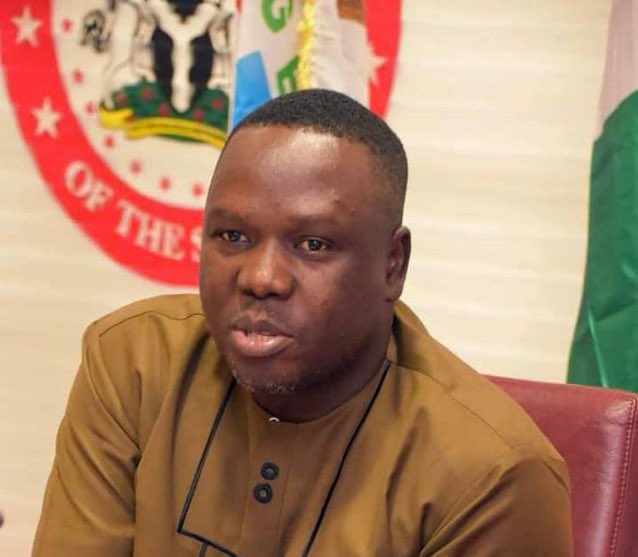Daniel Bwala, the Special Adviser to the President on Policy Communication, has pointed accusing fingers at state governors for the escalating insecurity and rampant killings plaguing Nigeria. He argues that the governors’ inadequate funding of existing security structures, despite receiving substantial security votes, lies at the heart of the problem. Bwala highlights the disparity between the meager sums allocated to federal security agencies operating within the states and the vast amounts designated as security votes, questioning the governors’ commitment to tackling insecurity. He cites instances where governors allocate paltry sums to critical security agencies like the SSS, police, and army, while simultaneously controlling security votes running into billions of Naira. This discrepancy, he contends, reveals a lack of prioritization of security and a misallocation of resources that could be instrumental in curbing the escalating violence.
Bwala’s assertions come against the backdrop of a series of horrifying attacks across the nation. In Plateau State, over 120 villagers were massacred in Bokkos and Bassa Local Government Areas, displacing thousands and drawing sharp condemnation from international human rights organizations. Similar tragedies unfolded in Benue and Enugu states, where scores of innocent citizens fell victim to brutal attacks. These incidents, coupled with the alarming statistics of over 1,300 deaths in Plateau State alone since December 2023, underscore the gravity of the security crisis and the urgent need for effective intervention. The recurring violence has fueled calls for the establishment of state police forces, with proponents arguing that localized control over security apparatus would be more responsive to specific threats.
However, Bwala dismisses the clamor for state police as a diversionary tactic, masking the underlying issue of weak governance at the state level. He maintains that the current security framework, comprising the police, DSS, military detachments, and locally organized vigilante groups, is sufficient to address the security challenges if governors effectively deploy their resources. He emphasizes the need for transparent allocation of security votes, prioritizing the acquisition of essential equipment like drones and vehicles for surveillance and combat operations. Furthermore, he advocates for improved infrastructure and support for federal security agencies operating within the states, ensuring they are adequately equipped to counter the evolving tactics employed by criminal elements, including the use of sophisticated technology like drones.
Bwala outlines a strategic approach to utilizing security votes effectively. He proposes a multi-tiered security architecture mirroring the political structure, establishing vigilante groups at the ward, local government, and state levels. This localized approach, he argues, would facilitate intelligence gathering and provide a first line of defense against insurgent activities. He believes that empowering local communities to participate actively in security efforts would significantly contribute to curbing the violence. He criticizes the tendency of governors to abdicate responsibility by claiming they lack the authority to address security issues effectively, emphasizing that within the existing framework, they possess ample resources and legal instruments to make a substantial difference.
The presidential aide challenges the notion that state police forces are the panacea to the security crisis. He questions the financial viability of establishing and maintaining such forces, particularly in states grappling with salary payment challenges. He argues that the significant financial burden of running a state police force would be unsustainable for many states, diverting resources from other critical sectors. While acknowledging the potential benefits of state police in the long term, he emphasizes the urgency of utilizing existing resources and frameworks effectively to address the immediate security threats. He advocates for prioritizing the strengthening of existing security structures and empowering local communities to play a more active role in maintaining security.
In essence, Bwala’s argument centers on the principle of accountability and effective resource management. He contends that the current security architecture, if adequately funded and strategically deployed, can effectively address the escalating violence. He challenges state governors to prioritize security, allocate resources transparently, and empower local communities to actively participate in security efforts. He criticizes the tendency to seek external solutions like state police while neglecting the potential of existing structures and resources. His perspective highlights the importance of prudent financial management and strategic deployment of resources as key components of an effective security strategy. He advocates for a proactive and collaborative approach, involving all stakeholders in addressing the complex security challenges confronting the nation.


